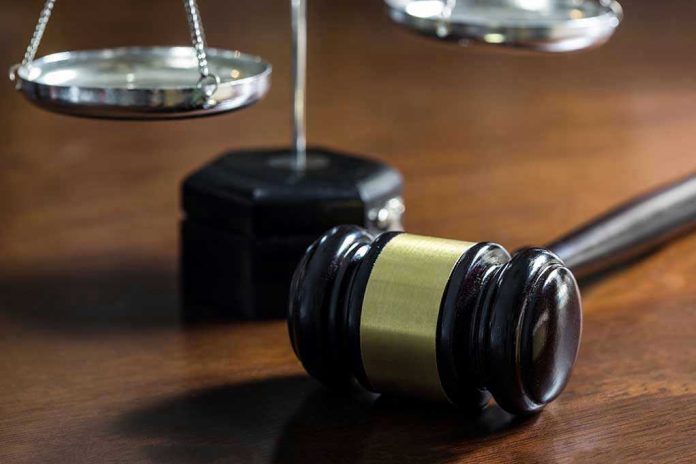
A judge’s controversial courtroom decisions in the Charlie Kirk murder case have sparked intense debate about balancing defendant rights with public transparency in politically charged trials.
Story Highlights
- Judge Tony Graf allows accused killer Tyler Robinson to wear civilian clothes during all pretrial proceedings
- Court restricts media from photographing or recording Robinson in shackles to prevent jury prejudice
- Media access decisions postponed as attorneys debate transparency versus security concerns
- Case dubbed potential “trial of the century for Utah” due to political implications
Balancing Justice and Perception in Utah’s Biggest Case
Judge Tony Graf faces an unprecedented challenge in presiding over Utah’s most politically explosive murder case. The conservative activist Charlie Kirk’s September shooting death has thrust Utah’s Fourth District Court into national spotlight, forcing Graf to navigate competing demands for transparency, security, and judicial impartiality. His recent rulings reflect the delicate balance required when high-profile political violence meets the American justice system.
Former prosecutor Nathan Evershed captured the gravity perfectly, describing this as potentially “the trial of the century for Utah.” The judge’s decisions will likely establish precedents for how courts handle politically sensitive cases where media attention threatens to overwhelm traditional judicial processes.
Defendant Rights Take Precedence Over Media Spectacle
Graf’s ruling allowing Robinson to wear civilian clothing during pretrial hearings demonstrates judicial wisdom in preventing prejudicial imagery. The decision protects Robinson’s constitutional right to presumption of innocence while acknowledging how orange jumpsuits can psychologically influence potential jurors. This approach aligns with established legal principles that defendant appearance should not prejudice proceedings before guilt is determined.
The restriction on photographing Robinson in shackles serves similar purposes. Restraint imagery creates powerful visual narratives that can contaminate jury pools long before trial begins. Graf recognizes that in our social media age, such images spread instantly and permanently, making fair jury selection nearly impossible in high-profile cases.
Media Access Battles Reveal Deeper Constitutional Tensions
The postponed decisions on media access expose fundamental tensions between First Amendment press freedoms and Sixth Amendment fair trial rights. Media organizations argue public interest demands transparency, especially given the case’s political implications and questions about ideologically motivated violence. They contend that sunlight remains the best disinfectant for judicial proceedings.
However, Graf must weigh these interests against Robinson’s right to fair proceedings uncontaminated by media circus atmospheres. The judge’s cautious approach suggests he understands that rushed decisions favoring immediate transparency could ultimately undermine justice. Virtual hearings and restricted access may frustrate media outlets, but they protect the integrity of legal processes.
Security Concerns Reflect America’s Political Climate
The heightened security surrounding this case reflects broader concerns about political violence in America. Kirk’s prominence in conservative circles makes his alleged murder more than local crime – it represents potential political assassination that has rattled activist communities nationwide. Law enforcement’s elevated alert status acknowledges threats that extend beyond typical criminal proceedings.
Graf’s security-conscious rulings demonstrate judicial awareness of current political tensions. His decisions prioritize participant safety while maintaining constitutional protections, showing how courts must adapt to America’s increasingly polarized environment. The January 2026 hearing schedule provides time for thorough security planning and legal preparation.
Sources:
KFOX-TV: Level of media access remains unclear in Tyler Robinson case
KUTV: Judge rules Tyler Robinson allowed to wear civilian clothes, must wear restraints












